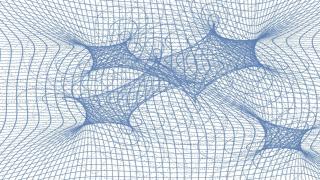Bibcode
Guerras, Eduardo; Dai, Xinyu; Mediavilla, Evencio
Bibliographical reference
The Astrophysical Journal
Advertised on:
6
2020
Journal
Citations
7
Refereed citations
7
Description
We define a second-order moment of the observational differential microlensing curves that can be used to impose constraints on physical properties of lensed quasars. We show that this quantity is sensitive both to variations in the source size and the deflector mass. We formulize a methodology to recover the source size from the observational measurements when the mass spectrum is fixed. As a case study, we test it with a sample of four quadruple lenses, both in simulated scenarios and with real data from the Chandra X-ray Observatory. In our simulations with a uniform stellar population the method works best to detect sources around 0.1 Einstein radii, giving correct upper/lower limits for much smaller/bigger sizes without requiring a big leap in additional computational effort as compared to a single-epoch approach, yet taking advantage of multi-epoch information. We apply the method to a small sample of X-ray data from four objects assuming a range of star masses, and obtain a degeneracy relation between the source size and deflector mass. Combined with previous estimates for the size of the X-ray corona, the degeneracy relation suggests that X-ray microlensing is mainly induced by planetary mass objects.
Related projects

Relativistic and Theoretical Astrophysics
Introduction Gravitational lenses are a powerful tool for Astrophysics and Cosmology. The goals of this project are: i) to obtain a robust determination of the Hubble constant from the time delay measured between the images of a lensed quasar; ii) to study the individual and statistical properties of dark matter condensations in lens galaxies from
Evencio
Mediavilla Gradolph